-
 bitcoin
bitcoin $87959.907984 USD
1.34% -
 ethereum
ethereum $2920.497338 USD
3.04% -
 tether
tether $0.999775 USD
0.00% -
 xrp
xrp $2.237324 USD
8.12% -
 bnb
bnb $860.243768 USD
0.90% -
 solana
solana $138.089498 USD
5.43% -
 usd-coin
usd-coin $0.999807 USD
0.01% -
 tron
tron $0.272801 USD
-1.53% -
 dogecoin
dogecoin $0.150904 USD
2.96% -
 cardano
cardano $0.421635 USD
1.97% -
 hyperliquid
hyperliquid $32.152445 USD
2.23% -
 bitcoin-cash
bitcoin-cash $533.301069 USD
-1.94% -
 chainlink
chainlink $12.953417 USD
2.68% -
 unus-sed-leo
unus-sed-leo $9.535951 USD
0.73% -
 zcash
zcash $521.483386 USD
-2.87%
How to calculate Bitcoin mining income
Determining Bitcoin mining profitability involves considering factors like Bitcoin price, mining difficulty, hashrate, electricity costs, block rewards, transaction fees, pool fees, and tax implications.
Jan 10, 2025 at 07:20 am
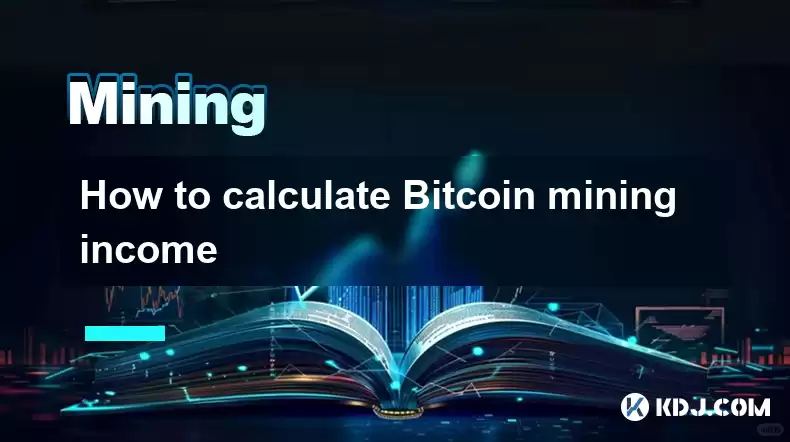
- Understanding Factors Influencing Bitcoin Mining Income
- Step-by-Step Calculation Method
- Equipment Selection and Hashrate Determination
- Electricity Costs and Consumption Calculation
- Revenue from Block Rewards and Transaction Fees
- Pool Considerations and Fees
- Tax Implications and Legal Considerations
- Bitcoin price: The market value of Bitcoin directly impacts mining profitability as it determines the value of block rewards.
- Mining difficulty: This is a constantly adjusting parameter that measures the computational effort required to mine a block. It affects the frequency of block rewards.
- Hashrate: The computational power of mining equipment determines how many hashes can be generated per second.
- Electricity costs: Electricity is the major expense in Bitcoin mining. Its cost varies regionally and can significantly impact profitability.
- Choose specialized mining hardware (ASICs) with high efficiency and low power consumption.
- Consider the hash rate (TH/s) of the ASICs and align it with the current mining difficulty.
- Research different ASIC manufacturers and compare their specifications, including profitability estimates.
- Estimate the electricity consumption of your mining equipment based on manufacturer specifications.
- Calculate the cost of electricity based on your local electricity rate.
- Monitor and optimize electricity consumption to reduce operating expenses.
- Block rewards: Miners receive a fixed amount of Bitcoin for successfully mining a block.
- Transaction fees: Miners also collect a portion of the transaction fees associated with the transactions within a block.
- Estimate the potential revenue based on the current Bitcoin price and network transaction fees.
- Join a mining pool to combine hashrate and increase the chances of finding a block.
- Choose a pool with low fees and consider mining solo if you have sufficient hashrate and a reliable connection.
- Research different mining pools and compare their fees, pool size, and reward distribution mechanisms.
- Bitcoin mining rewards and transaction fees are taxable in many jurisdictions.
- Consult with a tax professional to determine your specific tax obligations related to mining income.
- Obtain necessary permits and licenses if required by local regulations.
Q: What is the best way to estimate my mining income?A: Use an online mining calculator that takes into account your equipment, electricity costs, and current market conditions.
Q: Can I mine Bitcoin without specialized equipment?A: Yes, but using CPUs or GPUs for mining is considerably less profitable than using ASICs.
Q: How often is the mining difficulty adjusted?A: The mining difficulty is adjusted every two weeks based on the total network hashrate.
Q: Are there any other ways to earn from Bitcoin mining besides block rewards?A: Yes, joining a mining pool rewards miners for submitting partial hashes even if they don't find a block.
Q: What are the environmental implications of Bitcoin mining?A: Bitcoin mining consumes significant electricity, but its environmental impact depends on the energy sources used by the mining facilities.
Disclaimer:info@kdj.com
The information provided is not trading advice. kdj.com does not assume any responsibility for any investments made based on the information provided in this article. Cryptocurrencies are highly volatile and it is highly recommended that you invest with caution after thorough research!
If you believe that the content used on this website infringes your copyright, please contact us immediately (info@kdj.com) and we will delete it promptly.
- Bitcoin's Rocky Road: Inflation Surges, Rate Cut Hopes Fade, and the Digital Gold Debate Heats Up
- 2026-02-01 09:40:02
- Bitcoin Shows Cheaper Data Signals, Analysts Eyeing Gold Rotation
- 2026-02-01 07:40:02
- Bitcoin's Latest Tumble: Is This the Ultimate 'Buy the Dip' Signal for Crypto?
- 2026-02-01 07:35:01
- Big Apple Crypto Blues: Bitcoin and Ethereum Stumble as $500 Billion Vanishes Amid Macroeconomic Whirlwind
- 2026-02-01 07:35:01
- Michael Wrubel Crowns IPO Genie as the Next Big Presale: A New Era for Early-Stage Investments Hits the Blockchain
- 2026-02-01 07:30:02
- XRP, Ripple, Support Level: Navigating the Urban Jungle of Crypto Volatility
- 2026-02-01 06:35:01
Related knowledge
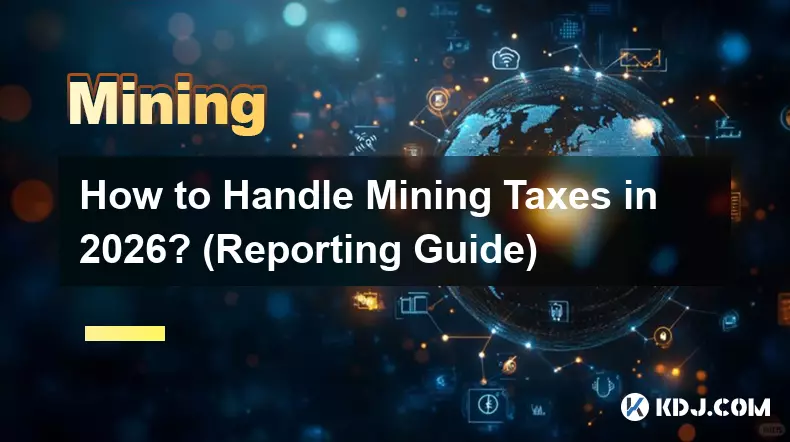
How to Handle Mining Taxes in 2026? (Reporting Guide)
Feb 01,2026 at 01:39am
Tax Classification of Mining Rewards1. Cryptocurrency mining rewards are treated as ordinary income at the fair market value on the date of receipt. 2...

How to Start Solo Mining and Win a Block Reward? (High Risk/Reward)
Feb 01,2026 at 06:40am
Understanding Solo Mining Mechanics1. Solo mining means operating a full node and attempting to solve cryptographic puzzles independently without join...
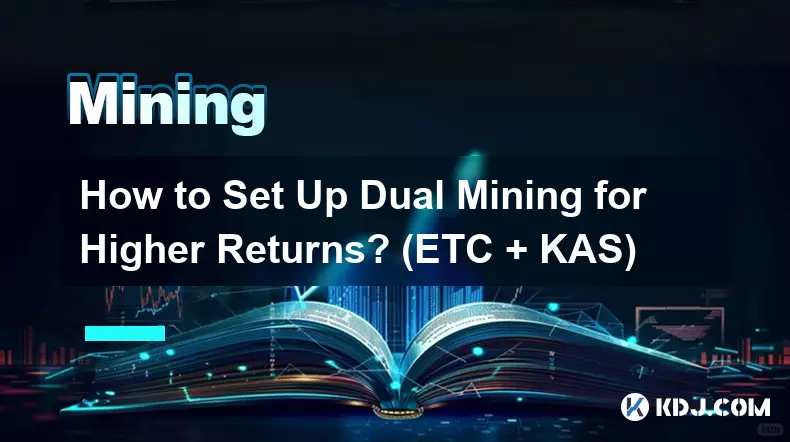
How to Set Up Dual Mining for Higher Returns? (ETC + KAS)
Feb 01,2026 at 02:19am
Dual Mining Fundamentals1. Dual mining allows a single GPU to simultaneously contribute computational power to two different blockchains using compati...
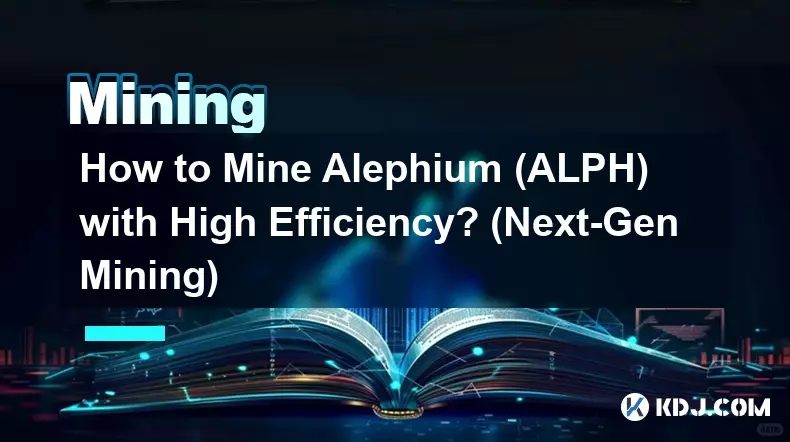
How to Mine Alephium (ALPH) with High Efficiency? (Next-Gen Mining)
Feb 01,2026 at 05:39am
Understanding Alephium's Unique Consensus Mechanism1. Alephium employs a sharded Proof-of-Work (PoW) consensus called BlockDAG with Recursive Sharding...
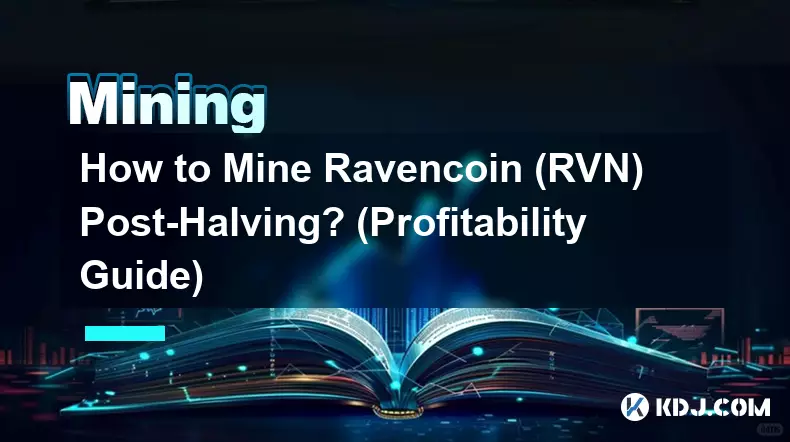
How to Mine Ravencoin (RVN) Post-Halving? (Profitability Guide)
Feb 01,2026 at 07:59am
Understanding Ravencoin Mining Mechanics1. Ravencoin operates on a proof-of-work consensus model using the KAWPOW algorithm, specifically designed to ...
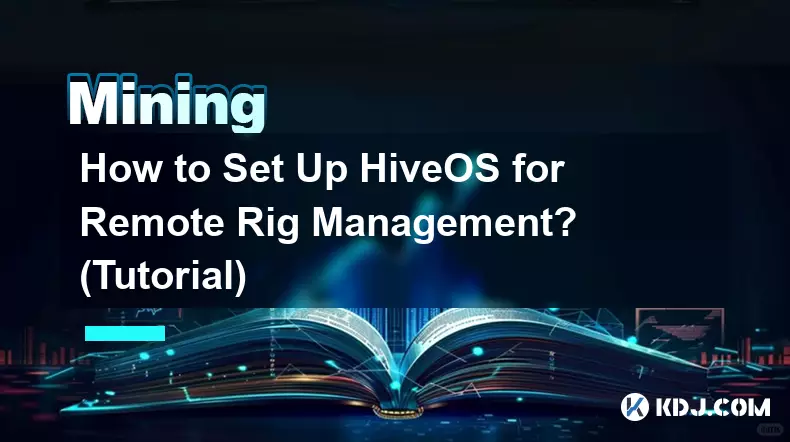
How to Set Up HiveOS for Remote Rig Management? (Tutorial)
Feb 01,2026 at 12:39am
Understanding HiveOS Fundamentals1. HiveOS is a Linux-based operating system specifically engineered for GPU mining rigs, offering lightweight perform...

How to Handle Mining Taxes in 2026? (Reporting Guide)
Feb 01,2026 at 01:39am
Tax Classification of Mining Rewards1. Cryptocurrency mining rewards are treated as ordinary income at the fair market value on the date of receipt. 2...

How to Start Solo Mining and Win a Block Reward? (High Risk/Reward)
Feb 01,2026 at 06:40am
Understanding Solo Mining Mechanics1. Solo mining means operating a full node and attempting to solve cryptographic puzzles independently without join...

How to Set Up Dual Mining for Higher Returns? (ETC + KAS)
Feb 01,2026 at 02:19am
Dual Mining Fundamentals1. Dual mining allows a single GPU to simultaneously contribute computational power to two different blockchains using compati...

How to Mine Alephium (ALPH) with High Efficiency? (Next-Gen Mining)
Feb 01,2026 at 05:39am
Understanding Alephium's Unique Consensus Mechanism1. Alephium employs a sharded Proof-of-Work (PoW) consensus called BlockDAG with Recursive Sharding...

How to Mine Ravencoin (RVN) Post-Halving? (Profitability Guide)
Feb 01,2026 at 07:59am
Understanding Ravencoin Mining Mechanics1. Ravencoin operates on a proof-of-work consensus model using the KAWPOW algorithm, specifically designed to ...

How to Set Up HiveOS for Remote Rig Management? (Tutorial)
Feb 01,2026 at 12:39am
Understanding HiveOS Fundamentals1. HiveOS is a Linux-based operating system specifically engineered for GPU mining rigs, offering lightweight perform...
See all articles





















![THIS IS THE HARDEST COIN TO GET [POLY DASH] THIS IS THE HARDEST COIN TO GET [POLY DASH]](/uploads/2026/01/31/cryptocurrencies-news/videos/origin_697e0319ee56d_image_500_375.webp)




















































